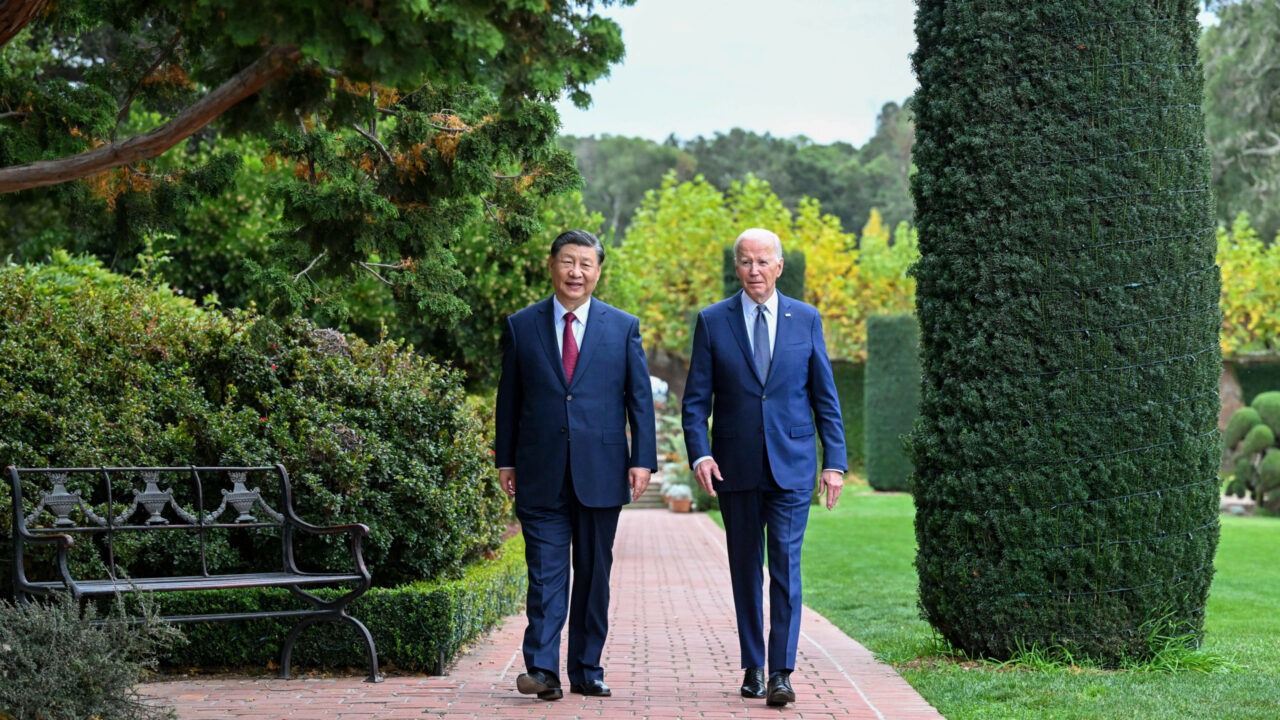Polywar and polyamorous geopolitics
US President Joe Biden’s largely successful response to Russia’s war against Ukraine reflects his vision of the world as a bloc of democracies facing off against revisionist autocracies. But there is growing evidence that this is a minority view, even among some of America’s closest allies
Far from merely shaking up the politics of the Middle East, Hamas’s attack on Israel, together with Russia’s war in Ukraine, is pushing the world further toward multipolarity.
Having travelled to Washington for the opening of ECFR’s new programme in the United States, I spent much of last week doing two things: talking to White House, defence, and state department officials about the state of the world; and poring over the results of ECFR’s latest global public opinion poll. What struck me most is that, despite America’s success in uniting allies against Russia’s invasion of Ukraine and China’s encroachments in the Indo-Pacific, US officials remain deeply uncertain about the evolving international situation.
When Russian president Vladimir Putin ordered the invasion of Ukraine in February 2022, US president Joe Biden was quick to denounce it as an assault on the international rules-based order. He took pains to mobilise the world’s democracies against revisionist autocracies, and his administration is now justifiably proud of the progress made towards building new ties between its Atlantic allies and those in the Indo-Pacific.
Japan, Australia, and South Korea have all contributed substantially to the Ukrainian war effort, with the latter supplying so much ammunition that White House officials have started referring to the “South Korean counteroffensive” in eastern Ukraine. Meanwhile, America’s European allies have become more engaged in the Indo-Pacific and with Taiwan. The US has effectively squared the circle of maintaining support for Ukraine while shoring up its alliances in Asia. The result looks a lot like Biden’s broader vision for the world. A united bloc of democracies is facing off against Russia and China.
But now this vision is being challenged on two fronts. First, the conflict in Israel-Gaza is calling into question the exceptional nature of the war in Ukraine. With many in the global south (and in the West) already arguing that the war in Ukraine is just one of many conflicts around the world, US officials are worried about the new competition for political attention and munitions. This concern will only grow if the Middle East conflict escalates or, more ominously, inspires a major domestic terrorist incident. Whereas Putin’s invasion of Ukraine brought the West together, the external and internal divisions over the Israeli-Palestinian question threaten to pull it apart.
Second, our poll of around 25,000 people across 21 countries shows that most respondents reject Biden’s basic framing, with its implication that they should be forced to choose sides in a world split between democracies and autocracies. Instead, majorities in most countries believe that we live in an “à la carte world”. Although many people are attracted to the West’s democratic values, they would rather pick and choose elements from different systems than wholly emulate or align with a particular model.
The upshot is that people around the world admire European soft power and appreciate US security guarantees, but see China as the most attractive economic partner. While most respondents would still choose the US over China if they had to, very few believe that they face such a choice. Thus, most admire the Western values that Ukraine is fighting for, but do not share the West’s war aims. Instead, they want the conflict to end as soon as possible, even if that means a Ukrainian defeat. Perhaps even more worrying for the Biden administration, most Europeans would prefer to stay neutral in the event of a war between the US and China over Taiwan.
While most respondents would still choose the US over China if they had to, very few believe that they face such a choice
Many in the West assume that the countries that have benefited from the rules-based order would want to join them in defending it. But the Indonesias and South Africas of the world see things differently. After all, many governments would welcome an unravelling of the multilateral institutions in which they have lacked adequate representation, and they enjoy being wooed by great powers rather than always being taken for granted. In a world where people want choices, the biggest revisionist powers, Russia and China, don’t actually need to be as attractive as the established powers to embody an alternative option.
Of course, many of the US policymakers I met with still question the relevance of the global south, especially now that America has strengthened the bonds between advanced democracies, particularly in military terms. Yet there is no denying that many countries across the global south are becoming more important in demographic, economic, and military terms. If it doesn’t matter that they feel no need to choose between the US and China, it will soon enough.
While the US sees its friends and allies as partners in a marriage, many of those partners believe they are living in a polyamorous world, where one can trade partners regularly depending on the matter at hand. US policymakers may be used to this from India, but what do they say to being jilted by Israel or to Saudi Arabia making overtures to China and Russia? On the crucial issue of Taiwan, even the Europeans want to keep their options open.
This article was first published in Project Syndicate on 16 November 2023.
The European Council on Foreign Relations does not take collective positions. ECFR publications only represent the views of their individual authors.



